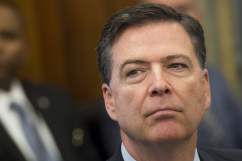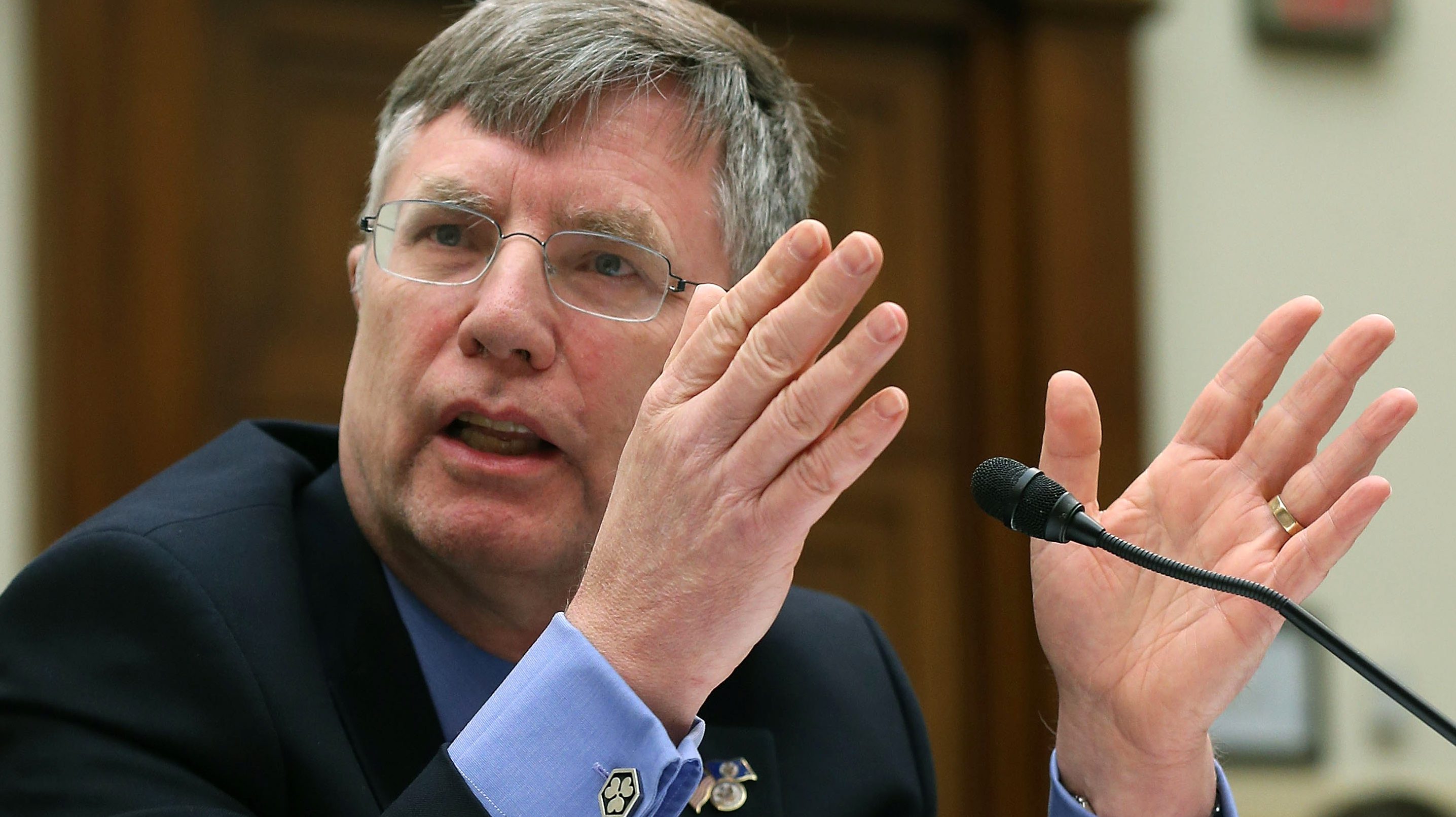
Patrick Kennedy, Undersecretary of State for Management testifies during a House Foreign Affairs Committee hearing, September 18, 2013 in Washington, DC. (Getty)
An FBI agent accused another agent and a top State Department official of discussing a “quid pro quo” agreement that would have led to the declassification of an email in Hillary Clinton’s private server in exchange for extra slots for the FBI in Baghdad.
The accusation came to light in a set of documents released by the FBI this week after a Freedom of Information request.
The unidentified agent made a statement about the alleged “quid pro quo” during the criminal investigation into Clinton’s private email server, according to the Washington Post.
The statement led to interviews of the FBI agent, Brian McCauley, and the State Department official, Under Secretary of State for Management Patrick Kennedy, but no wrongdoing was found.
Here’s what you need to know:
1. The FBI Denied There Was Any ‘Quid Pro Quo’ Between the Now-Retired Agent & Kennedy
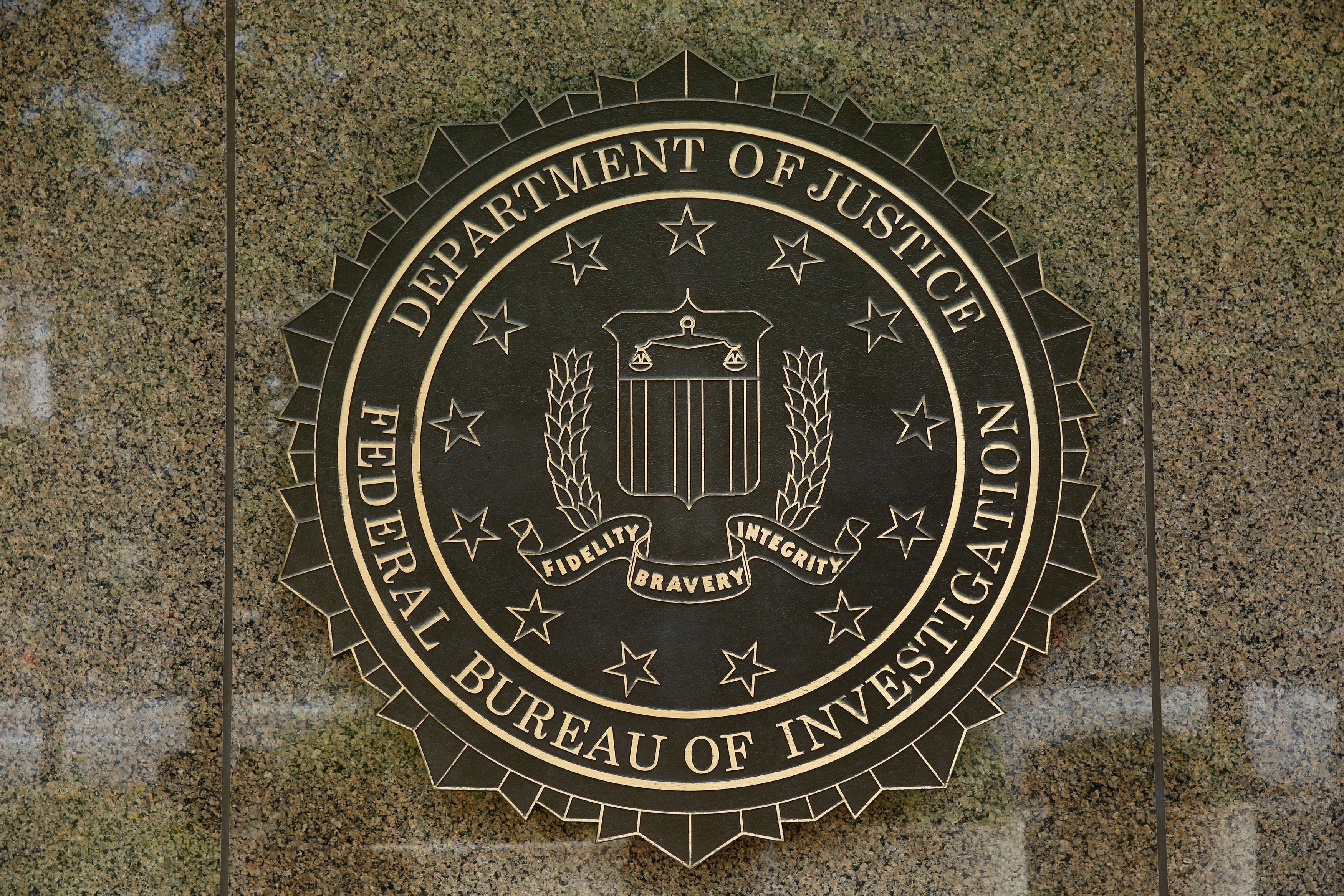
The FBI logo is seen outside the headquarters building in Washington, DC on July 5, 2016. (Getty)
The FBI issued a statement on Monday denying there was ever a “quid pro quo” in place between Patrick Kennedy and Brian McCauley:
Prior to the initiation of the FBI’s investigation of former Secretary Clinton’s personal email server, the FBI was asked to review and make classification determinations on FBI emails and information which were being produced by the State Department pursuant to FOIA. The FBI determined that one such email was classified at the Secret level. A senior State Department official requested the FBI re-review that email to determine whther it was in fact classified or whether it might be protected from release under a different FOIA exemption. A now-retired FBI official, who was not part of the subsequent Clinton investigation, told the State Department that they would look into the matter.
Having been previously unsuccessful in attempts to speak with the senior State official, during the same conversation, the FBI official asked the State Department official if they would address a pending, unaddressed FBI request for space for additional FBI employees assigned abroad.
Although there was never a quid pro quo, these allegations were nonetheless referred to the appropriate officials for review.
The conversation between McCauley and Kennedy occurred in May 2015, McCauley told the Washington Post. McCauley said he had been trying to reach Kennedy, his contact at the State Department, for several weeks in an effort to put two FBI agents back in Baghdad.
“He said: ‘Brian. Pat Kennedy. I need a favor,'” McCauley told the Post “I said: ‘Good, I need a favor. I need our people back in Baghdad.’”
Kennedy replied, “There’s an email. I don’t believe it has to be classified,” McCauley told CNN.
McCauley told the New York Times he was the one who suggested a “quid pro quo,” with Kennedy, saying their initial conversation, “was a quid pro quo; I don’t deny it.”
He said that is typically how “federal agencies help each other and work with each other.”
But McCauley said he then learned the classified email in question was related to the attack on Benghazi, and called Kennedy to say he could not help him.
“It was off the table; the quid pro quo was not even close to being considered,” McCauley told the Times.
2. The State Department Says the Accusation of a ‘Quid Pro Quo’ Is ‘Inaccurate’ & Kennedy Was Trying to Understand Why the Email Was Classified
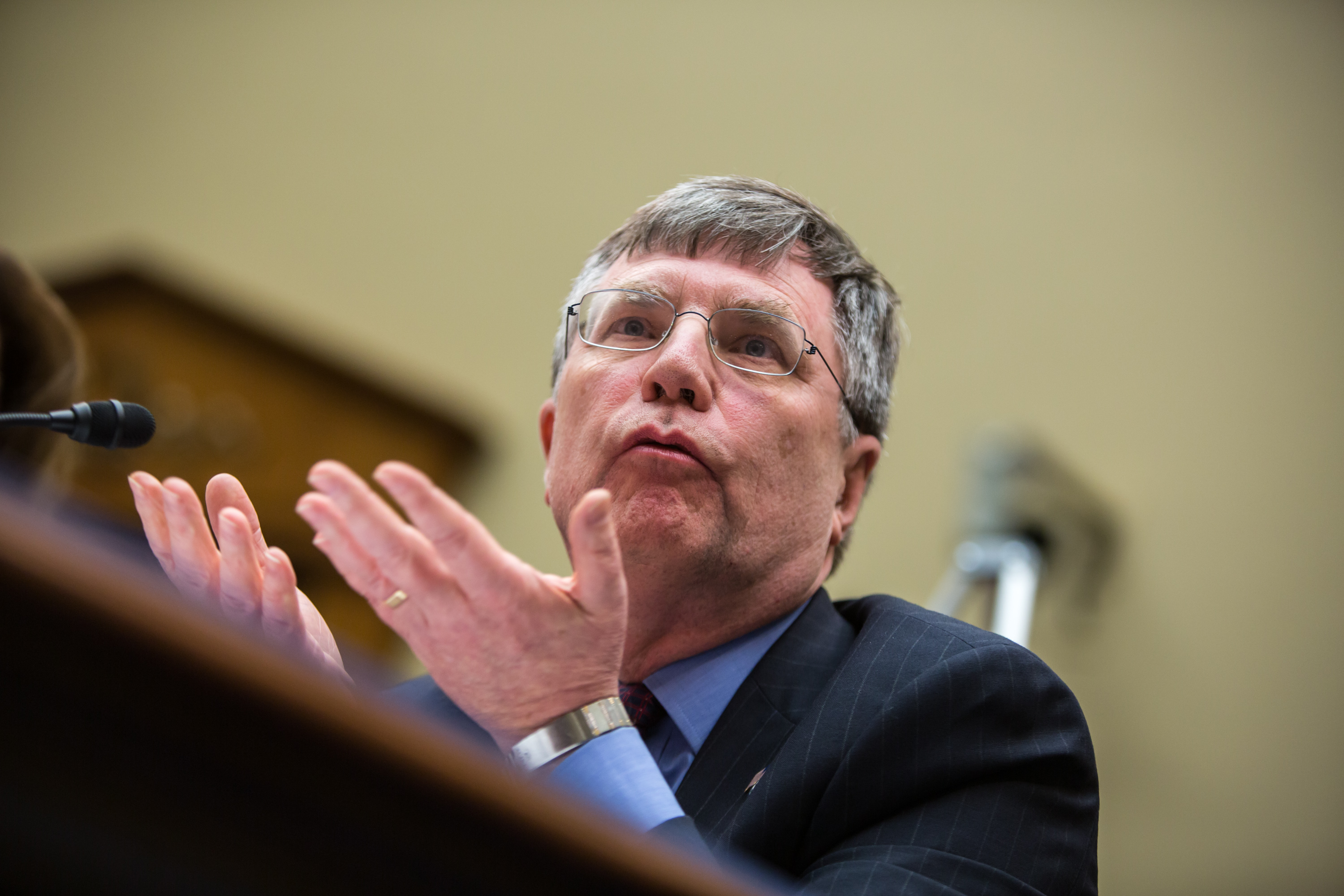
Ambassador Patrick Kennedy, Under Secretary for Management at the U.S. Department of State, testifies on Capitol Hill on October 10, 2012 in Washington, DC. The hearing before the House Oversight and Government Reform Committee focused on the security situation in Benghazi leading up to the September 11 attack that resulted in the assassination of U.S. Ambassador to Libya J. Christopher Stevens. (Getty)
The State Department called the accusation of a quid pro quo “inaccurate,” according to CNN, saying Patrick Kennedy was trying to determine why the email had been classified.
“Classification is an art, not a science, and individuals with classification authority sometimes have different views,” State Department spokesman Mark Toner told CNN. “There can be applicable FOIA exemptions that are based on both classified and unclassified rules. … We have been committed to releasing as much information to the public as possible, and ensuring that documents are withheld due to classification only when necessary to prevent damage to national security — as the Executive Order on classification calls for.”
Another State Department spokesman, John Kirby, told CNN, “Not only is there no proof. It’s absolutely not true, a completely false allegation. It just didn’t happen that way. There was no bargain sought by the FBI. There was no bargain rendered. This was simply an inner agency conversation about the classification over one particular email. So there was no wrongdoing here.”
Kennedy has denied McCauley’s recollection of a quid pro quo discussion during the first conversation.
“There was no quid pro quo, nor was there any bargaining,” Kennedy told the Washington Post. “At no point in our conversation was I under the impression we were bargaining.”
He said his intentions were “never political,” according to the Post.
“I have served as a member of the Foreign Service for some 40 years — serving both Democratic and Republican administrations,” Kennedy said. “My sole aim was to ensure that we were responsive to our legal obligations under FOIA.”
3. The Email Remained Classified & the FBI Did Not Get an Increased Amount of Slots in Iraq After the Conversation
T
Nothing came out of the conversation between Kennedy and McCauley, officials say. The email remains classified and the FBI did not get an increased amount of slots in Iraq.
“Following the call, the FBI official consulted with a senior FBI executive responsible for determining the classification of the material and determined the email was in fact appropriately classified at the Secret level,” the FBI said in a statement. “The FBI official subsequently told the senior State official that the email was appropriately classified at the Secret level and that the FBI would not change the classification of the email. The classification of the email was not changed, and it remains classified today.”
4. Trump Claimed the FBI, State Department & Department of Justice Colluded to Make ‘Hillary Clinton Look Less Guilty’
Donald Trump called the “quid pro quo” report “unbelievable,” and released a video accusing the FBI, State Department and Department of Justice of colluding to make Clinton “look less guilty” and “look a lot better than she looks.”
In the video, Trump said, “This is one of the big breaking stories of our time, in my opinion. This shows corruption at the highest level. … This is collusion, between the FBI, the Department of Justice and State Department to try to make Hillary Clinton look like an innocent person, while she’s guilty of very high crimes. So all I can say is, let’s hope our country gets a fair shake. This is a big mess.”
5. FBI Director James Comey Has Faced Criticism From Trump, Other Republicans & His Own Agents for the Handling of the Clinton Email Investigation
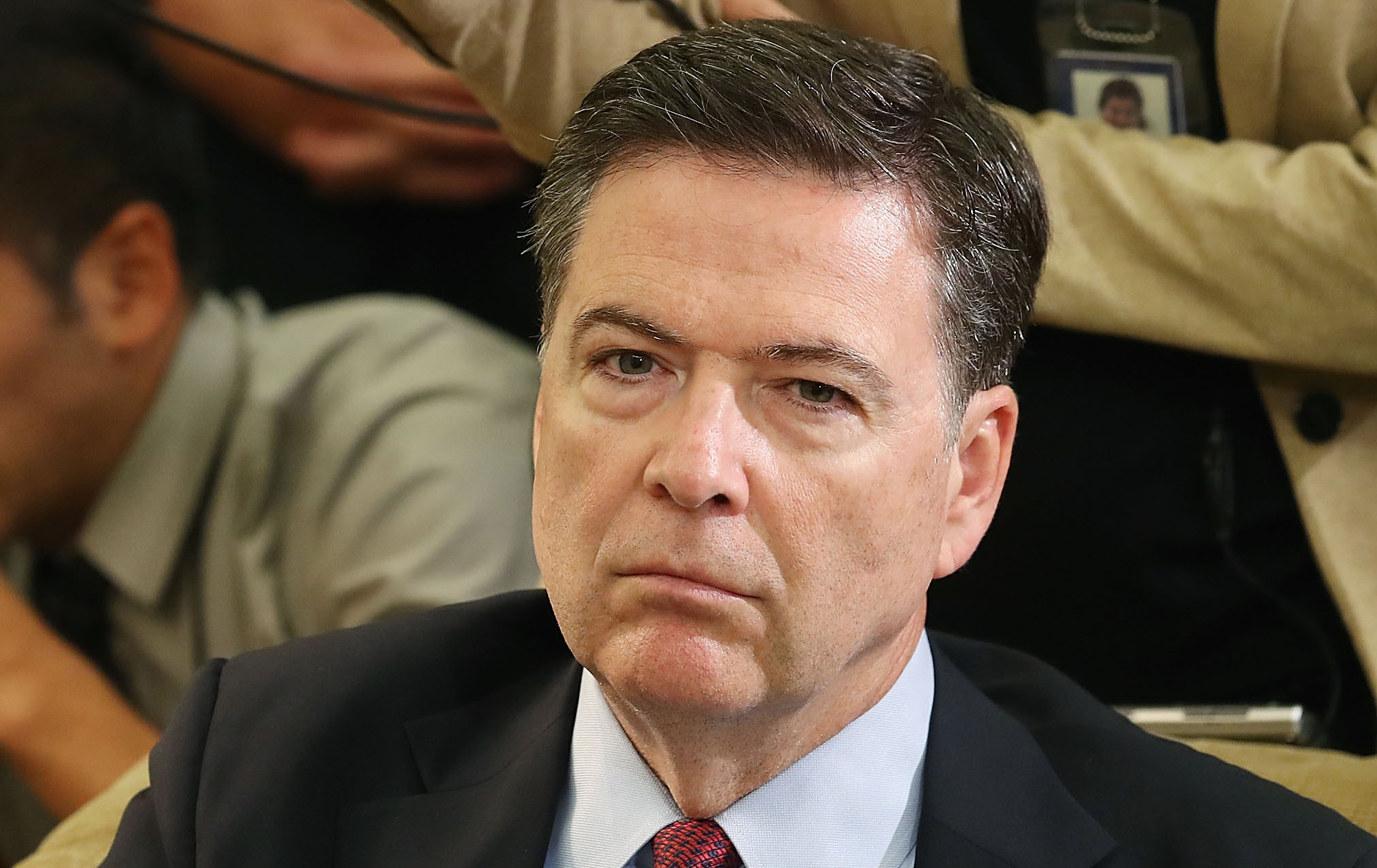
FBI Director James Comey (Getty)
The “quid pro quo” accusation is the latest hit to the FBI and its director, James Comey, who have come under fire for their handling of the Clinton email investigation.
Comey, a Republican, recommended in July that no charges be brought against the Democratic presidential nominee, saying her wrongdoing did not rise to a criminal level.
Two federal agents have accused Comey of standing in the way of the Clinton investigation, according to The Daily Caller.
“This is a textbook case where a grand jury should have convened but was not. That is appalling,” an FBI special agent who has worked public corruption and criminal cases said of the decision, according to The Daily Caller. “We talk about it in the office and don’t know how Comey can keep going.”
